May 28, 2025 | 12:18 GMT +7
May 28, 2025 | 12:18 GMT +7
Hotline: 0913.378.918
May 28, 2025 | 12:18 GMT +7
Hotline: 0913.378.918
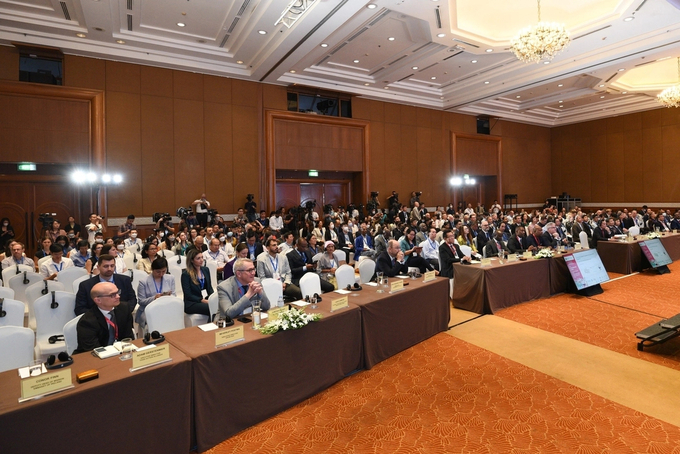
More than 300 delegates, of which about two-thirds are from international, attended the 4th Global Conference of Sustainable Food Systems in Vietnam. Photo: Tung Dinh.
Over the past 50 years, CGIAR has worked with many countries, including Vietnam, to showcase science and initiatives to reduce hunger and promote food system development (LTTP) and agriculture on a global scale.
Currently, 5 out of 15 centers of this organization have representative offices in Vietnam, coordinating more than 100 projects and helping millions of Vietnamese farmers to benefit. These include the Bioversity Alliance and CIAT, the International Potato Center (CIP), the International Center for Agroforestry Research (ICRAF), The International Livestock Research Institute (ILRI), and the International Rice Research Institute (IRRI).
The transformation of the food system is one of the focuses of CGIAR. In 2020, CGIAR centers participated in technical support for regional and national dialogues on the transformation of the food system in Vietnam, within the framework of the United Nations Summit on the Food System (UNFSS). After that, the centers continued to participate in the Technical Group to support Vietnam in developing the National Action Program on the transformation of a sustainable food system. This was approved by the Government in March 2023.
During 4 days from April 24 to 27, CGIAR together with hundreds of international organizations attended and contributed to the One Planet Network's Global Conference on Sustainable Food Systems. This event aims to further promote the food system approach and comprehensive governance and cooperation at all levels. It also provides a forum for national coordination focal points, the UNFSS coalition, multi-stakeholder initiatives and actors in the food system, capacity building, and collective efforts in roadmaps towards a sustainable food system, prior to the UNFSS 2023 efforts review conference.
Through a session on the sidelines of the Global Food Conference, the Bioversity Alliance and CIAT and CGIAR centers proposed some adjustments in the research program, with priority given to helping Vietnam transform a sustainable food system and towards improving a healthy diet that contributes to food security and nutrition.
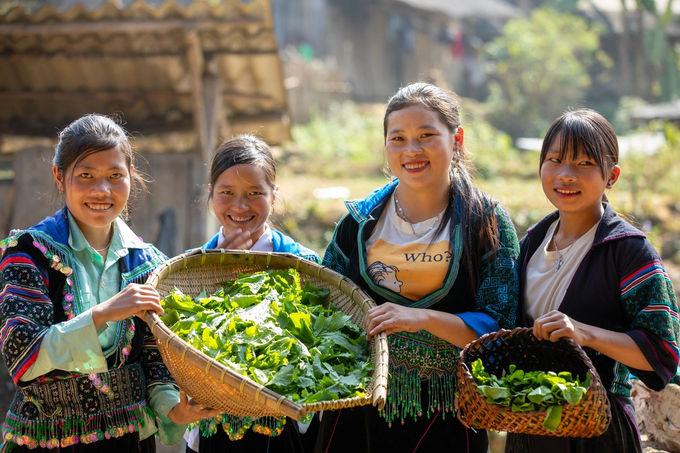
Ethnic people receive vegetable seeds from the sponsorship program. Photo: CIAT.
Stephan Weise, Asia Regional Director of the Alliance shared: “Vietnam is certainly one of the countries that can align national agricultural and food system policies with global recommendations regarding climate, biodiversity, and trade.”
According to Mr. Weise, the national plan on transforming the transparent, responsible, and sustainable food service system recently issued in Vietnam includes many practical actions. These include developing products including sustainable livestock, value chain, and food consumption in a favorable direction, reducing emissions, create varieties resistant to climate change. The plan also considers the environment for the adoption of smart agricultural technologies.
On this basis, the Alliance of Bioversity and CIAT are committed to working strongly in the areas of the food environment, improving consumer behavior, transforming digital agriculture, and developing sustainable, diverse landscape biology for food and agricultural systems.
In addition to implementing CGIAR initiatives such as SHiFT, SAPLING, Nature-Positive Solutions, Plant Health, and Asian-Mega Deltas. The Alliance projects also work to identify key milestones related to the Food System Transformation program, the National Zero Hunger Action Program, and the National Plan for Climate Change Adaptation.
The Bioversity and CIAT Alliance are also committed to devoting resources to creating and scaling solutions to emerging cassava diseases in Vietnam, monitoring land use and deforestation for coffee plantations. These are all problems that help the agricultural industry benefit when cassava is reaching out to become a "billion-dollar tree". Europe has just passed a bill banning the import of agricultural products whose production processes degrade forests.
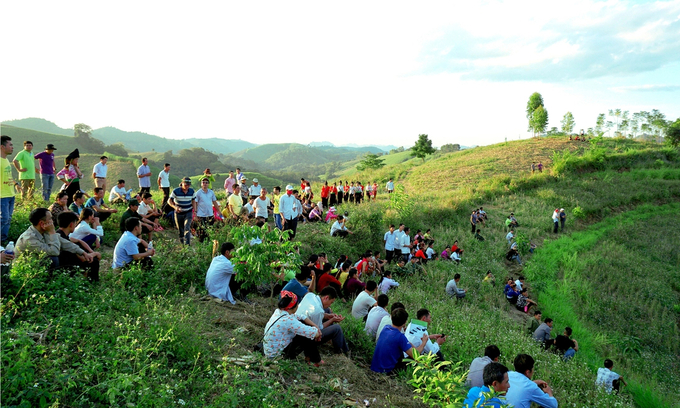
Organization of agroforestry models in the northern mountainous provinces. Photo: ICRAF.
Using natural solutions to restore degraded land and contaminated water while improving local livelihoods is also the goal that ICRAF is trying to create from new multifunctional agricultural environments.
Currently, the organization is working with local authorities at the landscape and farm levels to pilot and demonstrate agroforestry models. In the immediate future, it is necessary to prevent deforestation, help reduce the conversion of forest land to agricultural land, as well as restore degraded land through agroforestry practices.
For example, contoured pineapples or grasses on sloping soil help slow the flow of water and reduce the runoff of the topsoil. Trees in agroforestry practice help stabilize soil structure and improve soil fertility.
In particular, the long-term income and cash flow of farmers has improved markedly. For example, the net worth of a maize-based agroforestry system (with acacia and mango or longan) can be as high as $30,000 - $55,000/ha compared to $6,000/ha for monoculture maize after 20 years.
Most importantly, during the pilot phase, the total net income from the maize-based agroforestry system remained stable thanks to income from intercropping fruit or forage crops.
Vietnam is currently the 5th country in the world affected by climate change. To minimize the overall impact, Vietnam is working to reduce greenhouse gas emissions in its main export product - rice, through a new project on building 1 million ha of high-quality, low-emission rice.
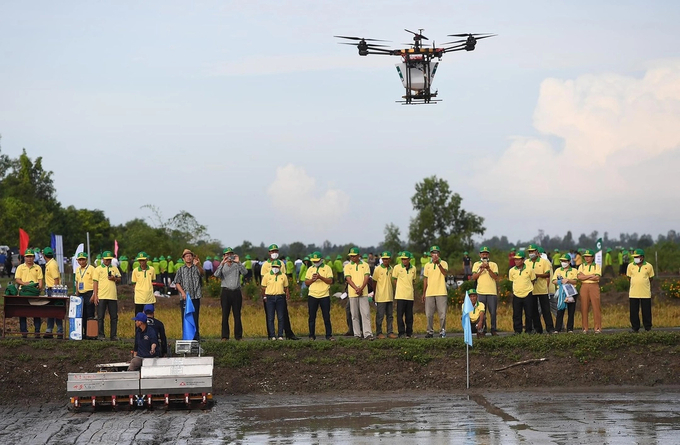
Application of drones in rice farming in the Mekong Delta. Photo: IRRI.
Before that, since the 1960s, Vietnam has cooperated with IRRI to breed climate-resistant rice varieties. Along with a series of initiatives co-supported by IRRI such as: Alternating dry irrigation (which reduces methane emissions by up to 50%); “One must, five reductions” helps to reduce and optimize input; Promoting mechanization and post-harvest, Vietnam from a rice importer to become the third largest rice exporter in the world.
Along with policy interventions including: Developing a National Roadmap for Low Emission of Rice; Developing a framework for greenhouse gas emissions and carbon credits; Developing rice farming processes in the direction of climate adaptation for ecological regions, IRRI is committed to continuing to deliver initiatives and best management practices for high-value rice production, low emission in the project of 1 million hectares, in collaboration with MARD, the Department of Crop Production and the provincial Departments of Agriculture and Rural Development.
At the same time, IRRI will study and implement a measurement, reporting, and verification system for the rice carbon market, in order to accurately assess Vietnam's transformations in the transformation of the food system.
In our country, the number of smallholder farmers is still relatively large. This greatly affects the livestock sector, especially in the context of livestock having to deal with issues related to sustainable development.
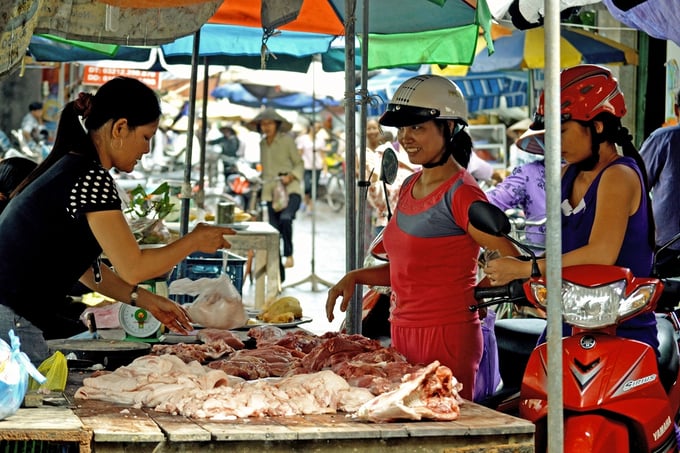
The SafePORK project helps to improve and enhance the quality of pork at the traditional market. Photo: ILRI.
Joining the flow of CGIAR centers, ILRI has participated in supporting the transformation of the food system in Vietnam. especially technical support related to food safety and One Health for the National Action Program on transforming the food system.
ILRI's food safety research focuses on foods of animal origin, primarily pork. This is an essential item for Vietnamese people and is often supplied and distributed in traditional markets where there is a risk of food insecurity.
Recently, through the SafePORK project funded by the Australian Center for International Agricultural Research (ACIAR), the results of food safety interventions in traditional pork slaughtering and retailing in the North have been significantly improved through simple and low-cost interventions. The results included a reduction in the prevalence of Salmonella, one of the most common foodborne pathogens, in retail pork from 52% to 24% in the studied traditional markets in Hung Yen and Thai Nguyen provinces. The project not only helps reduce the risk of foodborne diseases in pork originating from traditional markets and slaughterhouses but also contributes to helping Vietnamese people have healthier and more nutritious meals. The project is currently planning to replicate the intervention models in other provinces in Vietnam.
In a densely populated area like Asia, food security a few decades ago depended on corn, potatoes, and cassava. Statistics show that potatoes and sweet potatoes are the 4th and 8th most important food crops on the continent, respectively.
With that in mind, CIP has used genetic diversity at the gene bank to create more than 100 improved varieties of potatoes and sweet potatoes. Early maturing, disease-resistant, heat-resistant, drought-resistant, and salty potato varieties, as well as sweet potato varieties rich in vitamin A, make it easier for farmers to consume and adapt to climate change.
At one time, Vietnam had about 100,000 ha of potatoes, but the potato variety is sensitive to weather and pests, so its economic efficiency is lower when affected by climate change. Therefore, CIP's research not only supports 2.9 million potato farming households but also contributes to Vietnam's socio-economic transformation and the restructuring of each family's food basket.
Translated by Hoang Duy
/2025/05/27/4731-2-223159_980.jpg)
(VAN) No votive paper, no styrofoam, no plastic bags, no plastic bottles, and no single-use plastic trays are the key rules tourists should keep in mind when visiting Con Dao.

(VAN) In the fight against plastic pollution, Vietnam has been demonstrating a proactive, pioneering, and active role in addressing the greatest environmental challenge today.
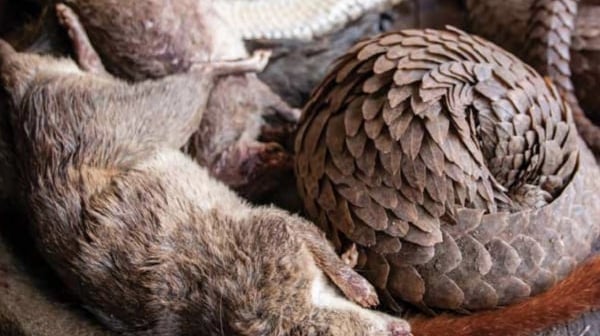
(VAN) The WOAH guidelines provide a vital tool for risk chain analysis, covering the extraction, transportation, consumption, and handling of confiscated wildlife.
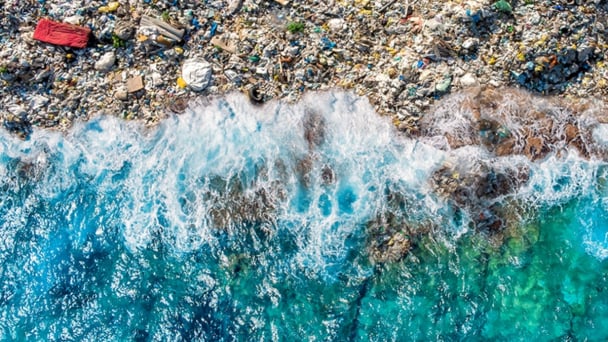
(VAN) World Environment Day 2025 is launched by the United Nations Environment Programme (UNEP) with the theme 'Beat Plastic Pollution'.
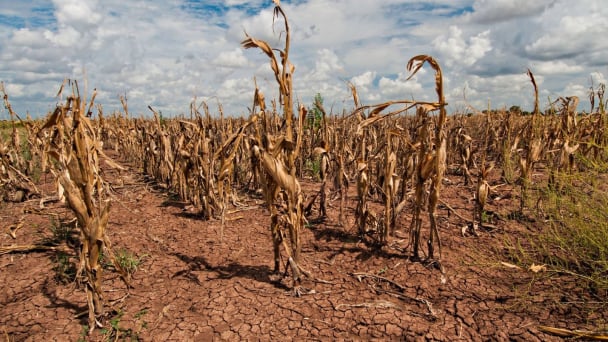
(VAN) As climate whiplash reshapes yields, experts say data-driven tools and targeted relief are critical to feed America.
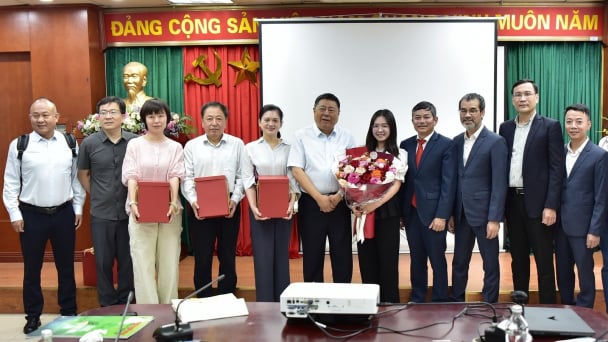
(VAN) The alignment in goals and operational direction between the Vietnam Agriculture and Nature Newspaper and Shaanxi Daily opens up promising prospects for journalism and media cooperation.
/2025/05/26/3422-3-102748_432.jpg)
(VAN) Prime Minister Pham Minh Chinh has been honored as the Distinguished ASEAN Leader at the ASEAN Leadership and Partnership Forum (ALPF) 2025 held in Malaysia, affirming Vietnam’s role and reputation.